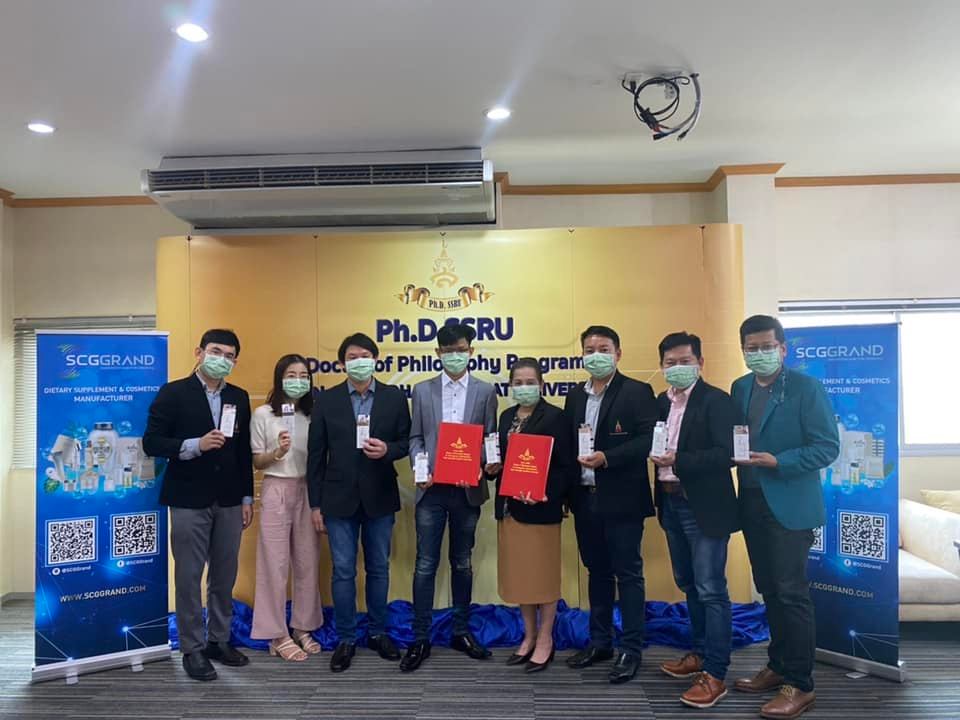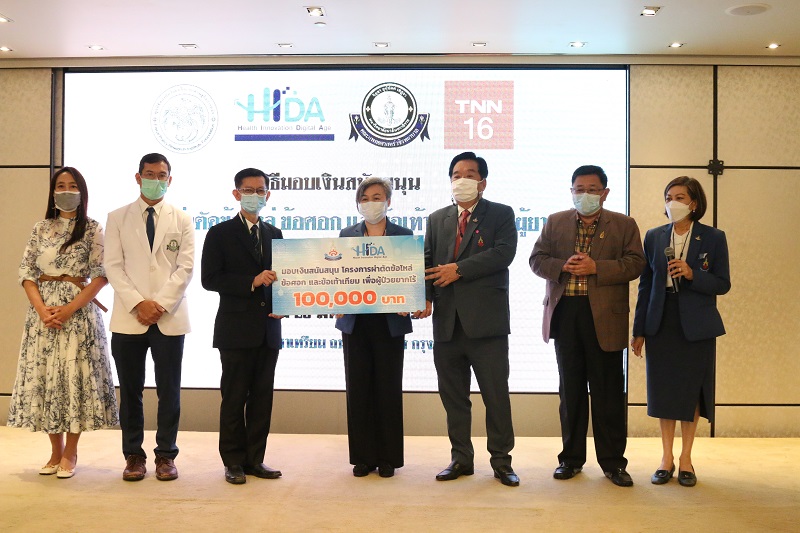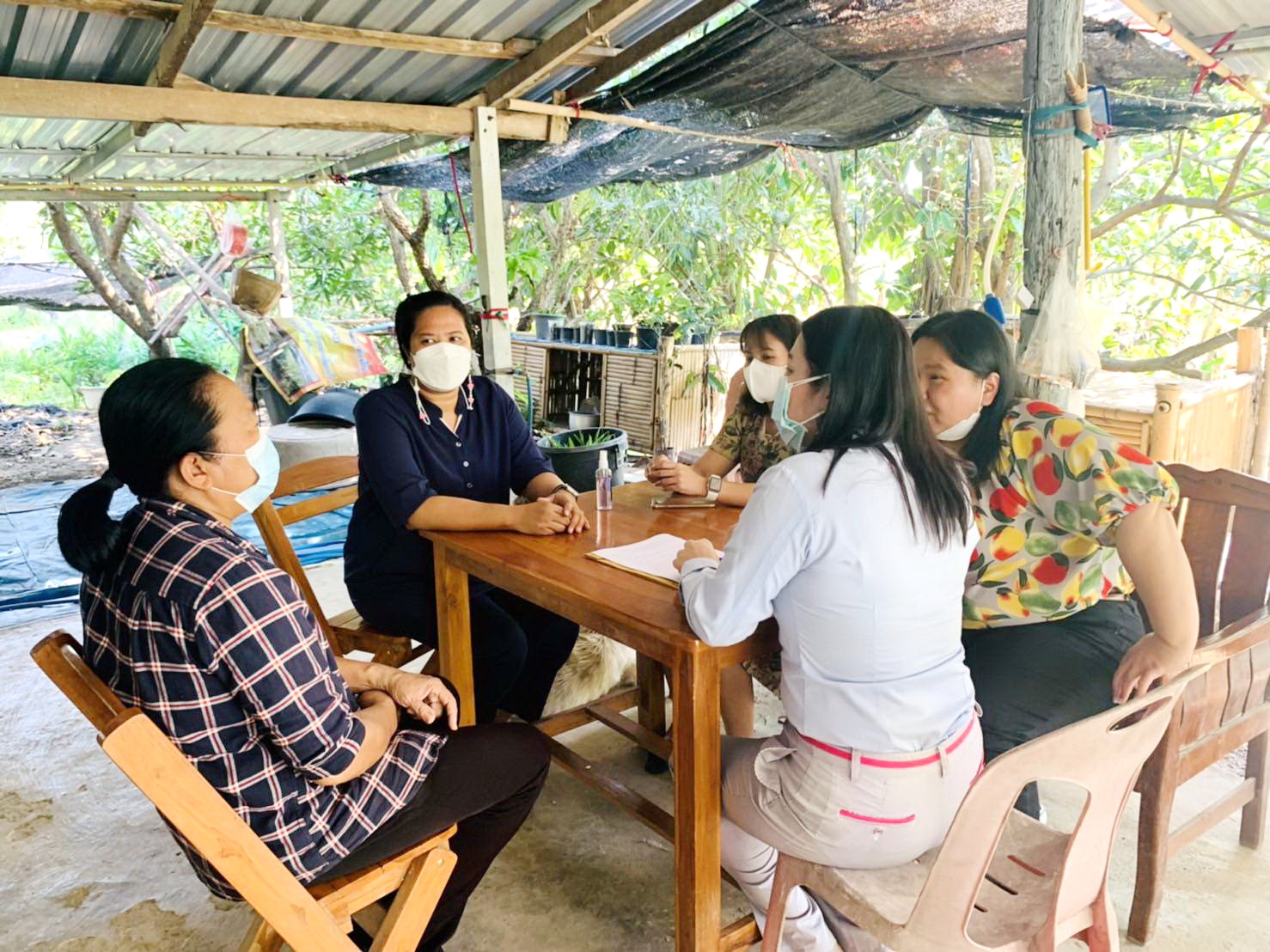Suan Sunandha researcher created social science research to conserve “Chanod trees” to promote “red lotus water” for reducing inequality and create sustainability for local villagers
In terms of culture and heritage, the province of Udon Thani is distinctive. Included in the geography are attractions such as Kham Chanod and the Red Lotus Sea, both of which are well-known throughout the country, requiring locals to contribute to the area’s preservation and improvement of the quality of life. To live a better life, they can earn money on their own. Assistant Professor Dr. Phusit Phukhamchanod, a lecturer in the Department of Social Sciences, Faculty of Humanities and Social Sciences, Suan Sunandha Rajabhat University, has begun research on the management of the development of the identity of “Kham Chanod,” conserving “Rukkanakha” in Udon Thani for the participation of grassroots people in producing shops, for well-being and happiness, and reducing inequality with the support from Science, Research, and Innovation Promotion Fund. Assistant Professor Dr. Phusit explained that the inspiration for this study originated from the Kham Chanod region, where there is a long-standing belief in the Naga and a distinct culture and tradition. At the same time, it is a tourist attraction, with visitors flocking to pay respect to Chao Pu Si Sutho and Chao Yai Sripatum every year. However, the majority of the research is out of reach for locals. In the area of cultural values, there is no research. Folklore is primarily used to beautify the landscape or the tourism impact which is a more distant context, and there is no conservation research with the “Chanod Tree” or “Rukkanaka,” which are both unique to the area. As a result, he initiated conservation research in 2011 by collecting data and reproducing the Chanod tree by tying the factors with the local people’s beliefs. Starting with the ceremony of transporting the Chanod tree seeds to be bred and then returned to Koh Kham Chanod to be planted. According to local beliefs, the space returned to be planted, along with the sacrifice ceremony, is a sacred spot. Most people are inaccessible and do not want to be disturbed by outsiders, but last year 2020 collaborated with various sectors to bring roughly 700 more Chanod trees that were bred in Koh Kham Chanod, allowing the research to continue from the beginning. A total of 3,028 trees have been planted. In addition to nurturing the Chanod tree for planting, Assistant Professor Dr. Phusit stated he talked and discussed with stores and local people about bringing the Chanod tree’s components to make a baisri for the serpent shape to be utilized in various sacrificial ceremonies. People used to revere sacred items in Koh Kham Chanod because the scaly leaves resembled those of a serpent. We wish to expand on this by breeding more Chanod trees to be placed in other regions outside of Koh Kham Chanod as a local plant conservation area. A sub-research was also conducted in the area of “Talay Bua Daeng,” which is located in Nong Han, Kumphawapi District. The province of Udon Thani is a tourist attraction with both beauty and flaws. The feature of bringing together locals to create things that are distinctive to the place. As a result, locals are encouraged to organize groups to produce “Red Lotus Juice” because it is simple to make and can also help tourists quench their thirst, and it has since become a local identity product. Red lotus juice is sold upon arrival at the Red Lotus Sea. It is not only a product, but it is also a piece of the community’s history. The initiative has resulted in the development of a revolving income within the community, reducing inequality. The people’s original residential houses were wooden houses, but the community has clearly grown richer, assisting in the reduction of inequality and being more socially resilient. What’s more, is the residents of both Koh Kham Chanod and Talay Bua Daeng are involved in every phase of the development of the community. Their products help to build a sense of ownership of the existing identity: Bai Sri Kham Chanod and red lotus juice. “Finally, what I want to leave is that research is not only science but also requires an understanding of identity,” said Asst. Prof. Dr. Phusit. “In order to obtain information in the local area as comprehensively and profoundly as possible, leading to local development.”










